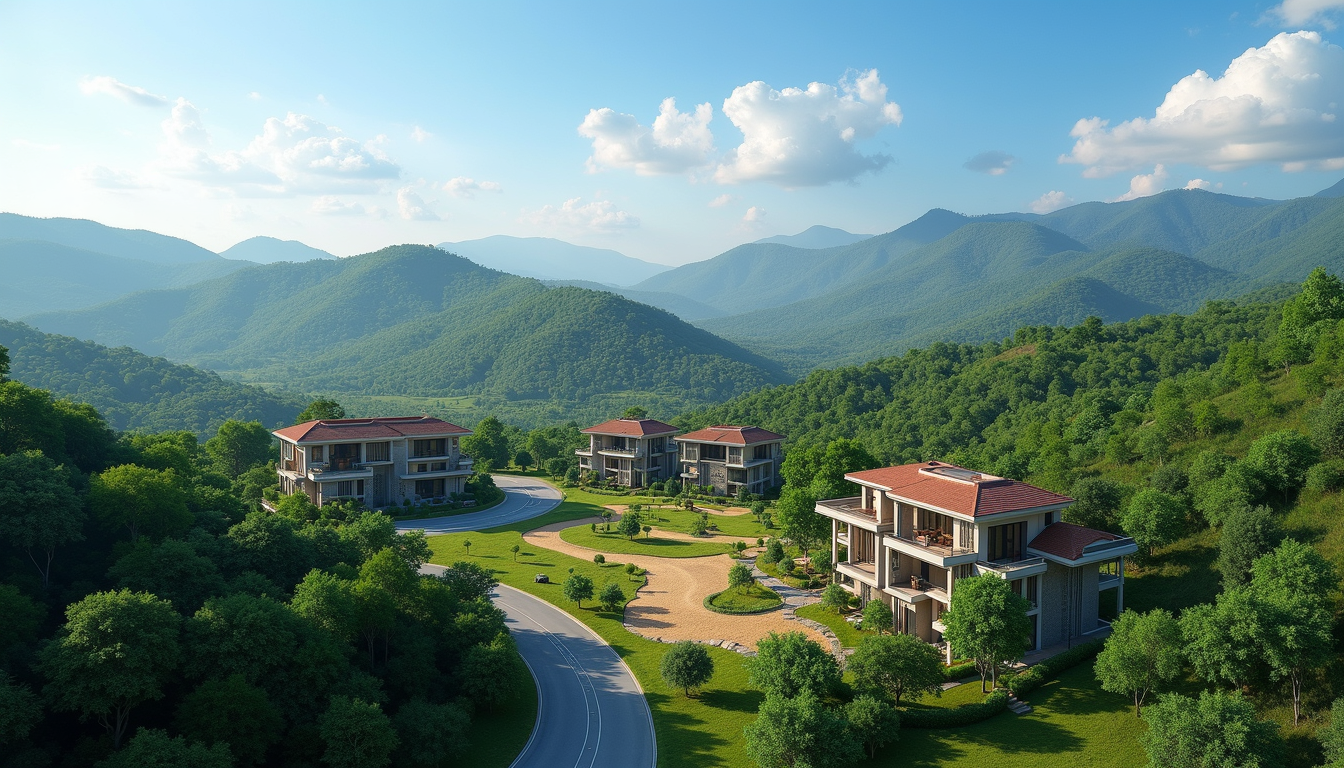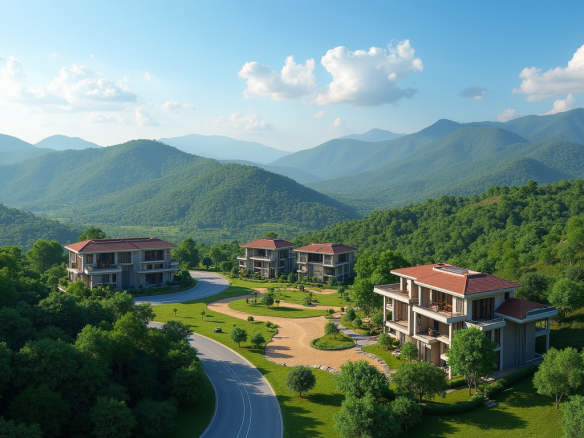Introduction
India’s real estate market is rapidly evolving, and one of its most promising segments today is land for resort. Once reserved for hospitality chains or niche investors, land for resort is now attracting individual buyers, NRIs, and high-net-worth investors seeking a blend of financial growth and lifestyle value. These properties go beyond luxury; they represent a lifestyle shift that merges leisure, business, and sustainability.
The Rise of Resort Investments in India
The post-pandemic world has changed how people view travel and living. Remote work, wellness retreats, and experiential tourism have created new demand for private resort spaces. As a result, land for resort in India has become a valuable long-term investment.
Destinations like Goa, Rishikesh, Corbett, and Himachal Pradesh are leading this transformation, offering steady tourism flows year-round. Investors are exploring small-scale resort developments and boutique retreats that cater to modern travelers’ preference for exclusivity and experience.
Why Invest in Resort Land
The biggest advantage of resort land is its dual nature; it provides steady income potential and long-term appreciation.
- Expanding Tourism Market
India’s domestic tourism is growing consistently, supported by government initiatives that promote rural, eco, and cultural tourism. Areas like Uttarakhand, Himachal Pradesh, and coastal Karnataka are witnessing increased infrastructure, pushing up land values. - Flexible Investment Options
Buying land for resort allows owners to choose their business model, from boutique villas and homestays to eco-lodges and wellness resorts. This flexibility lets investors scale according to their budget and vision. - Passive Income Generation
Resort properties offer a stable income stream. Many investors lease their land or partner with resort operators to manage the property, ensuring regular returns without daily involvement. - High Capital Appreciation
Tourist destinations continue to expand, and resort lands located nearby are appreciating rapidly. Early investors enjoy exponential growth in value over time.
Factors to Consider Before Buying Resort Land
Buying resort land requires planning and due diligence.
- Location and Accessibility
Accessibility remains key. Choose land close to highways, airports, or popular circuits. Scenic but accessible destinations guarantee consistent visitor flow and higher occupancy rates. - Legal Verification
Ensure clear titles and proper zoning permissions. Confirm that the land is approved for commercial or hospitality use. In eco-sensitive or hill regions, environmental clearance may also be required. - Infrastructure and Utilities
Basic amenities like water, power, and road access directly impact development cost and feasibility. Regions supported by local tourism departments usually have smoother infrastructure availability. - Sustainability and Design
Today’s travelers value sustainability. Incorporate solar energy systems, natural materials, and rainwater harvesting to attract eco-conscious tourists while reducing operational expenses.
Market Trends Shaping Resort Land in India
The Indian resort market is transitioning from large-scale hotels to experience-driven retreats. Investors are focusing on wellness centers, farm-based stays, and nature lodges.
Wellness and Nature-Focused Tourism
Land for resort near rivers, forests, or hill stations offers opportunities to build meditation, yoga, or spa retreats. This segment aligns with India’s global reputation as a wellness destination.
Remote Work and Long-Stay Tourism
The workation trend has led professionals to seek long-term stays at peaceful resorts with modern amenities. Land for resort near scenic but connected regions benefits most from this growing trend.
Government Support for Tourism
Programs like Swadesh Darshan and Dekho Apna Desh are expanding tourism infrastructure. Resort investors in these clusters enjoy better connectivity and property appreciation.
Benefits of Owning Resort Land
Portfolio Diversification
Land for Resort helps diversify your investment portfolio by combining real estate stability with hospitality income potential.
Dual Returns
Enjoy both financial and personal rewards; a place to vacation and an income-generating property.
Long-Term Growth
Tourism may fluctuate seasonally, but land for resort often appreciates faster than standard residential plots due to its limited supply and increasing demand.
How to Invest in Resort Land
• Research Emerging Destinations: Focus on tourist belts seeing infrastructure growth
• Check Documentation: Ensure the property has a clear title and commercial permissions
• Consult Experts: Work with professionals familiar with hospitality and resort zoning laws
• Start Small: Begin with boutique cottages or villas and scale up gradually
Conclusion
Land for resort in India represents the intersection of lifestyle and investment. As tourism evolves to favor eco-conscious, wellness-driven experiences, resort lands are becoming high-value assets that appreciate over time while generating steady returns.
Whether you plan to build a private getaway, partner with hospitality brands, or hold land for appreciation, resort property investment offers unmatched potential. The future of real estate belongs to spaces that combine profit, peace, and purpose, and land for resort is leading that transformation.



Join The Discussion